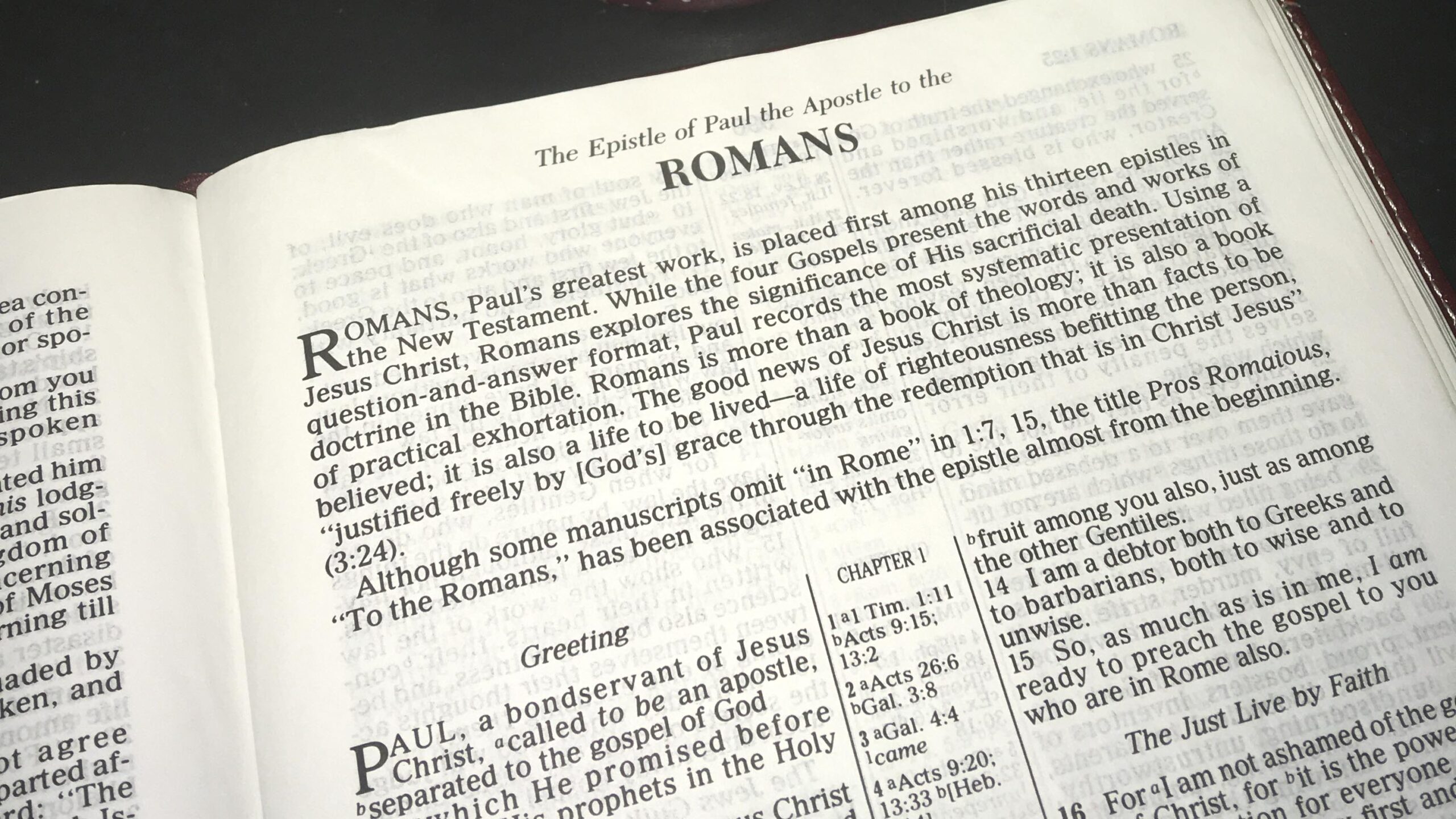
A couple weeks ago, Ligonier Ministries and Lifeway Research jointly released their 2022 survey of the state of American theology. This survey is conducted every two years and is designed to “take the temperature” of American popular opinion on 30-some statements about Christian theology and ethics. With the nifty “data explorer,” this year’s results can be further broken down and analyzed across all kinds of demographic lines, including denominational affiliation. In my corner of things, the buzz was focused on the results filtered for “evangelical” affiliation (which, importantly, is a distinct category from evangelical “beliefs”—we’ll return to this).
Specifically, heads turned at the startlingly high percentage of people who appeared to affirm Christological heresy: 43% “strongly or somewhat” agreeing that “Jesus was a great teacher, but he was not God,” and 61% “strongly or somewhat” agreeing that “Jesus was the first and greatest being created by God.” Meanwhile, results were markedly more conservative on questions around abortion and sexual ethics, of all kinds, with resounding majorities affirming that abortion, homosexuality, and premarital sex are sinful.
Many articles could be written about these results. You could spend hours playing with the breakdown tool and seeing how the numbers subtly shift with different combinations of denominational affiliation, age, ethnicity, and education. I may have stayed up a little too late doing this the other night. It’s fun, and a little addictive! You can learn all kinds of interesting and amusing things—for example, that Gen X had the highest concentration of affirmative answers to the “Jesus was a created being” statement, or that Gen Z and millennials were more insistent on the importance of attending a local church than boomers or older. Filtering by ethnicity can bring out interesting results too. For example, a higher relative percentage of black evangelicals affirmed that Jesus was created, whereas this was affirmed by a lower relative percentage of Asian evangelicals (granted, there were only 53 Asian-Americans in the sample, but it was a marked difference—where 70% of all the evangelicals were either in agreement or unsure, only 57% of the Asian-Americans fell in this zone).
But perhaps the biggest caveat I would issue about all of this data was also independently picked up by Steve Wedgeworth on Twitter: that when you filter for “evangelical belief” versus “evangelical affiliation,” all of this shifts dramatically. For fun, Steve decided to see what would happen if he filtered just for white men with “evangelical beliefs” in the “created being” statement response data. The results were overwhelmingly orthodox. He then further added the filter for education level, and lo and behold, even the one white guy who didn’t have a high school diploma (a millennial) gave an orthodox response!
So, people should keep all this in mind before they panic. The news might be better than feared. And besides this, Steve also noted that the “created being” statement was dropped in as a “negative” after a string of statements where checking “agree” meant you were agreeing with something orthodox. It would have been interesting to see whether results changed significantly if the statement had been phrased positively, e.g., “Jesus was fully God and fully man.” At a glance, high percentages of this same sample still affirmed other theologically conservative statements about the Trinity, the authority of Scripture, justification by grace through faith, and even eternal conscious torment (64% “strongly” affirm, even more signaled some level of affirmation). All of this hints that at least some of the sample really did click “agree” with Arian heresy by accident.
All that said, we should still take seriously the possibility that a good chunk of self-identified evangelicals really do hold unorthodox beliefs about the divine nature of Christ, or at best are just confused. In fact, I can confirm from personal experience that there are whole communities of folks who have non-Athanasian theology baked into their belief systems, yet would still have been most naturally binned as “evangelical” in this survey. You can encounter this among many people in Church of God 7th Day (COG7) circles. There’s also a sub-branch of people who call themselves “biblical Unitarians” (really) although possibly they would have self-identified as “mainline” here. But to talk to them, they can come across quite evangelical…until you get on to the Trinity. Add to this the people who sit in “garden-variety evangelical” pews and are just…still confused, somehow, for whatever reason. Biblically orthodox pastors and priests should be accordingly motivated to make very sure those are not their pews.
And yet, and yet: There’s still good news in this survey, even when you don’t apply the extra filter for “evangelical beliefs.” We should celebrate the very clear conservative signal on abortion and sexual ethics—and not just on homosexuality, but on any kind of sex outside of marriage. A solid majority of self-identified evangelicals in this survey still clearly understand that state-sanctioned baby murder is not okay and that sex is permitted only between one man and one woman in a covenant marriage. Hooray!
Or…not hooray, if you’re David French. I know, I’m sorry, but in this case his Atlantic reaction essay, which he titled “Evangelicals Decenter Jesus,” is so importantly wrong that I’m going to engage it here. Let’s just start with his tagline: “Sexual morality is not the heart of the Christian gospel.” There’s a meme for these occasions. Let me pull it up here…

Just so. Yet David beats the same drum throughout the piece, which contains none of the more nuanced poll analysis I offered above. Instead, he just woodenly throws up the numbers and intones that “Most evangelicals misunderstand who Jesus is.”
He then goes on:
Spend any time in Christian circles and you’ll quickly recognize that the culture is often consumed with line-drawing. Who is truly faithful? Or, to put it another way, when millions upon millions of people claim to follow Jesus, how do we discern who are his ‘true’ disciples and who is heretical?
For generations, American evangelicals have been taught—by word and deed—that the shortcut answer to that question lies in sexual ethics. Know where a person stands on sexual morality (so the argument goes) and you’ll know whether they’re orthodox.
Logic break! Let’s introduce the terminology of “necessary and sufficient conditions” here. X is a sufficient condition for Y if this statement is true: “If X, then Y.” X is a necessary condition for Y if this statement is true: “If Y, then X.”
Now, let’s apply this to sexual morality and orthodoxy. I think it’s clear that having conservative views on sexual ethics is not a sufficient condition for holistic orthodoxy. That is, we can’t always say, “If you’re conservative on sexual ethics, you’re broadly theologically orthodox.”
However, contra what I think French wants to imply here, sexual orthodoxy is a necessary condition for orthodoxy, period. You cannot deviate from the historic Christian sexual ethic and still be an orthodox Christian. That is simply an oxymoron. That person doesn’t exist. He is a figment of David French’s imagination. If you are orthodox, you are sexually orthodox. If Y, then X.
David assures us next paragraph that he himself subscribes to that traditional ethic. He just also wants to be really passive-aggressive about people who think the traditional sexual ethic has something to do with basic Christian orthodoxy. “The core of faith,” he informs us, “is not in moral codes but rather faith in the person of Jesus Christ.” Who, if I recall correctly, said something somewhere about how if you love him, you will keep his commandments. But anyway, David is still talking, and he wants to let us know his way of “focus[ing] on Jesus” is “both profoundly humbling and profoundly helpful.”
As my mom’s generation used to say, gag me with a wooden spoon.
David goes on to lecture the evangelical Church for choosing sexual sin as its “defining apostasy” over sins like racism, greed, cruelty, and gluttony (you didn’t seriously think we’d get out of this without the old gluttony chestnut, did you?) Of course, this is backwards. What’s actually happened is that the outside culture has chosen sexual sin as its defining rebellion, and the Church has been responding accordingly. Of course, I’m all for also talking about cynical materialism, about cruelty, about a variety of sins that can lead people astray in a variety of ways. Some young people might be instinctively “anti-woke” and not in any danger of falling for LGBT propaganda, but they could be vulnerable in other ways that require Christians to cast a comprehensive positive vision of the Good and the nature of man. So, yes, there’s more than one possible path out the church door. But the adoption of an unorthodox sexual ethic consistently remains one of the surest markers that that path is a one-way road.
David laments that the evangelical Church “leads with its moral code.” I regret to inform David that this is precisely what the evangelical Church should be doing. He might also want to look more closely at the survey’s age breakdown on the statement that the Bible’s injunctions against homosexuality don’t still apply today. The evangelical baseline for “strongly agree/somewhat agree/not sure” was 35%. By comparison, 47% of the 252 respondents aged 18-34 fell in this zone. There was a similar trend among the 232 millennial respondents (ages 35-49)—a combined total of 45%. So, if David French is worried that self-identified evangelicals might be “elevating morality” a little too much, he can rest assured that it looks like they’ll probably be doing it less in the future.
Once again: Despite my caveats, I’m not disagreeing that these survey results could be a signal of poor catechesis on certain basic doctrinal questions. I’m not disagreeing that a Church which literally “elevates the moral code over even the most basic understandings of Jesus Christ himself,” as David puts it, is in trouble. I’ve already mentioned specific denominational subcultures whose children are even explicitly catechized in flawed understandings of Jesus, although they are very conservative in many other areas, including the traditional sex ethic. Do I still fear for their salvation? Absolutely. But, you see, I’m consistent: I would have a similar fear for anyone who claims to be orthodox while also being pro-choice, or embracing a non-traditional sexual ethic. (And, quite frankly, I question how many people in that latter category have an orthodox understanding of Jesus’ nature either.)
Of course, you can keep on insisting to me that you know some very nice Christian pro-choicers, or very nice Christians who affirm gay marriage. I will tell you in return that I know some very nice Arians, and also a couple very nice biblical Unitarians. And I will be very blunt: There is even less excuse to whiff it on the sanctity of life and the natural order of marriage than there is to whiff it on the Trinity.
There. I said it. Because it’s true. Don’t misunderstand: I’m not saying that Jesus’ nature is not plain in Scripture. I’m saying that some plain truths are the gift of special revelation, and other plain truths are the gift of both special and natural revelation. For some things, no one is without excuse.
Decentering ethics decenters Jesus. He told us so himself. Don’t let David French or anyone else tell you otherwise.













